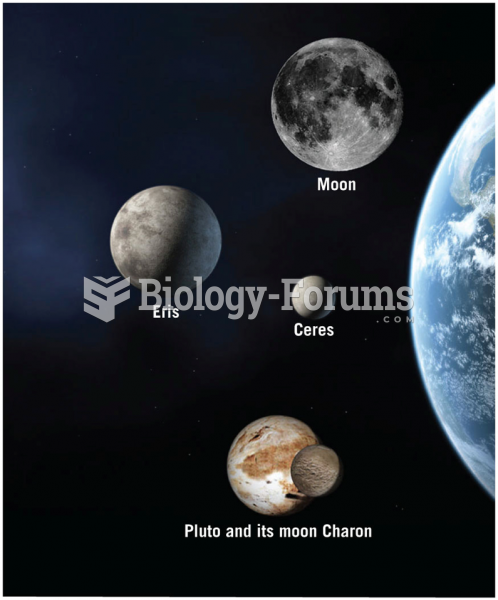This topic contains a solution. Click here to go to the answer
|
|
|
Did you know?
Historic treatments for rheumatoid arthritis have included gold salts, acupuncture, a diet consisting of apples or rhubarb, nutmeg, nettles, bee venom, bracelets made of copper, prayer, rest, tooth extractions, fasting, honey, vitamins, insulin, snow collected on Christmas, magnets, and electric convulsion therapy.
Did you know?
In 1864, the first barbiturate (barbituric acid) was synthesized.
Did you know?
Medication errors are more common among seriously ill patients than with those with minor conditions.
Did you know?
Asthma cases in Americans are about 75% higher today than they were in 1980.
Did you know?
Serum cholesterol testing in adults is recommended every 1 to 5 years. People with diabetes and a family history of high cholesterol should be tested even more frequently.







